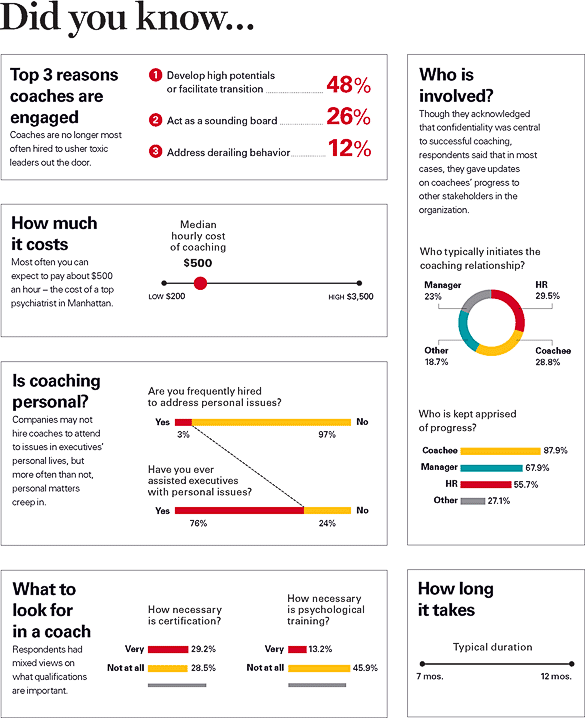
You’re a top executive, or rising executive, or new executive and you realize that your confidence could be increased, you’re not exactly sure what new communication strategies are needed at this level, and you’re navigating new waters of politics, strategy, and visibility. Where do you turn for support?
Even though this article from Harvard Business Review came out in 2009, it’s still relevant today. The authors of What Can Coaches Do for You share the results of a survey of 140 top coaches about the coaching industry, as well as commentary from five “experts” that highlight some of the challenges in how coaches are used and viewed in organizations. Of course, a lot has changed since 2009, and at the highest levels of leadership, an executive coach is mostly a strategic sounding board and safe space for leaders to think aloud and process their thoughts and intended results.
Ten years ago, most companies engaged a coach to help fix toxic behavior at the top. Today, most coaching is about developing the capabilities of high-potential performers.
Lest you think that an executive coach is the same thing as a “work therapist” or a consultant, the article clarified this with an infographic that distinguishes the three:

Here is what companies look for when hiring a coach:

Commentator Ram Charan stated, ‘There’s no question that future leaders will need constant coaching. As the business environment becomes more complex, they will increasingly turn to coaches for help in understanding how to act. The kind of coaches I am talking about will do more than influence behaviors; they will be an essential part of the leader’s learning process, providing knowledge, opinions, and judgment in critical areas. Firms wanted to signal their commitment to developing their high-potential executives, so they hired coaches. At the same time, businesspeople needed to develop not just quantitative capabilities but also people-oriented skills, and many coaches are helpful for that. As coaching has become more common, any stigma attached to receiving it at the individual level has disappeared. Now, it is often considered a badge of honor.”
David Peterson added, “Forty years ago, no one talked about executive coaching. Twenty years ago, coaching was mainly directed at talented but abrasive executives who were likely to be fired if something didn’t change. Today, coaching is a popular and potent solution for ensuring top performance from an organization’s most critical talent.”


